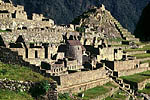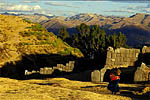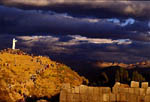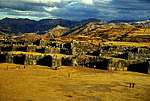![]()
Legacy of the Incas
Machu Picchu Luxury Tours
Peru:
Machu Picchu - Lake Titicaca
(11 days/10 nights)
Machu Picchu Luxury Tours
Peru:
Machu Picchu - Lake Titicaca
(12 days/11 nights)
Empire of the Sun
Machu Picchu Luxury Tours
Peru:
Machu Picchu - Lake Titicaca
(14 days/13 nights)
Ancient Civilizations of Peru
Machu Picchu Luxury Tours
Peru:
Colca Canyon - Machu Picchu
Lake Titicaca
(16 days/15 nights)
Archaeological & Ecological
Treasures
Machu Picchu Luxury Tours
Peru & Ecuador:
Galapagos - Machu Picchu
Lake Titicaca (or Amazon)
(18 days/17 nights)
Grand Tour of the Inca Empire
Machu Picchu Luxury Tours
Peru:
Colca Canyon - Amazon
Machu Picchu- Lake Titicaca
(22 days/21 nights)
Ancient & Colonial Capitals
Machu Picchu Luxury Tours
Peru:
Machu Picchu
(10 days/9 nights)
Inca Trail to Machu Picchu
Machu Picchu Luxury Tours
Peru:
Machu Picchu
(13 days/12 nights)
Machu Picchu & Galapagos
Machu Picchu Luxury Tours
Peru & Ecuador:
Machu Picchu - Galapagos
(15 days/14 nights)
Galapagos & Machu Picchus
Machu Picchu Luxury Tours
Ecuador & Peru:
Galapagos - Machu Picchu
(18 days/17 nights)
Enchanted Isles of the Galapagos
Machu Picchu Luxury Tours
Ecuador:
Galapagos
(11 days/10 nights)
Galapagos & the Kingdom of Quito
Machu Picchu Luxury Tours
Ecuador:
Galapagos - Andes
(16 days/15 nights)
Galapagos & the Amazon
Machu Picchu Luxury Tours
Ecuador:
Galapagos - Amazon
(16 days/15 nights)
Historic Haciendas of the Andes
Machu Picchu Luxury Tours
Ecuador:
Cotopaxi - Antisana - Otavalo
(7 days/6 nights)
© 2013 Inka's Empire Corporation.
All rights reserved.
![]()
Pontificia Universidad Católica del Perú
Ascent above the Sacred Valley of the Incas.
Photo: Globos of the Andes.
Part I : Prepare yourself for traveling to high elevations
Basic Concepts
At high elevations, the amount of oxygen in the atmosphere, percentage-wise, is the same as at sea level. But when barometric pressures diminish, so does the pressure of oxygen present in tissues (thereby causing Hypoxia).
This physical phenomenon explains why the quantity of oxygen molecules per breath inhaled is lower at higher elevations than it is at sea level. Faced with this type of challenge, individuals evolve acclimatization procedures that engage most of their systems: respiratory, blood and circulatory, renal, and nervous. The evolved physiological mechanisms tend to normalize the amount of oxygen in their tissues.
For there to be normal activity, an adequate supply of oxygen must first be secured. Peripheral chemoreceptors, or nerve endings, serve as sensors of the amount of oxygen that enters into the bloodstream. Nerve endings swiftly react to changes of oxygen pressure in arterial blood, and inform the nervous centers that control breathing and cardiac cycles. This information brings about a progressive increase in pulmonary ventilation, which can be observed during the first few days at high elevations (3 to 5 days). This process is called "Ventilatory Acclimatization." Concentrations of Nor-adrenaline and Adrenaline in the blood increase. This brings about a rise in cardiac frequency, regardless of whether the individual is in repose or working out.
If the exposure to high altitudes is long enough, the first adaptation strategies -- respiratory and cardiovascular adjustments -- give way to less strenuous mechanisms -- mainly an increased production of red blood cells -- that improve the transport of oxygen from the environment into the tissues. Adaptive reactions to high elevations may cause certain disorders, however, either by the over-functioning or under-functioning of the mechanisms involved in the acclimatization to high elevations.
These disorders can and should be avoided, by following the recommendations set forth in the second part of this advice. The time and quality of the acclimatization process varies from person to person. It has nothing to do with previous physical training, or the number of times a person has been in high elevations. If you have to travel to elevations higher than 3,500 meters (11,480 feet) above sea level and have to stay there, it's very important to prevent the onset of two distinctive pathologies produced by high elevations: pulmonary edema or brain edema.
These pathologies can manifest themselves in people intolerant to high elevations -- mainly the first week -- but can be avoided by being aware of what their initial symptoms are, and stopping them from fully developing.
Medication
- Acetazolamide
(Diamox)*
1 tablet every 12 hours, 24 hours before the trip.
Half a tablet every 12 hours until the third day in high elevations.
If not taking Acetazolamide prior to onset of symptoms, 1 tablet every 12 hours until the third day in high elevations. - Paracetamol
1 tablet every 8 hours, in case of headache. - Ibuprofen
1 400 mg pill before the trip and in case of headaches that don't lessen with Paracetamol, take 1 Ibuprofen every 12 hours after meals (it may produce stomach ache).
In case of continued altitude sickness, seek medical help. You must receive oxygen or be promptly removed to a lower elevation.
*In combination with aspirin, Diamox may be dangerous or fatal. Always consult your physician for medical advice about side effects, why this drug should not be prescribed, special warnings and possible drug interactions.
Part II: General recommendations for people traveling to high elevations
The day before your travel:
- Sleep well.
- Don't eat foods that are hard to digest.
- Don't drink alcoholic beverages.
The day you arrive:
- Refrain from strenuous physical activity.
- Drink at least one liter of water a day.
- Eat small quantities of food, preferably carbohydrates.
- Wear appropriate clothing to stay warm.
- Complete rest is recommended for people with altitude sickness scores higher than six points (see below).
- Don't take sleeping pills or tranquilizers.
The second to the fourth day after your arrival
- Refrain from strenuous physical activity.
- Drink plenty of liquids, commensurate to your physical activity.
- Don't eat foods that are hard to digest.
- Wear appropriate clothing to stay warm.
- Don't take sleeping pills or tranquilizers.
During your first four days in high elevations refrain from any strenuous physical activity.
If you feel like you are choking or are breathing noisily, your lips and/or ears turn purple or blue (cyanosis), you have a persistent cough and your sputum is foamy or pinkish in color, you may be developing a serious pulmonary edema caused by the high altitude. If that is the case, immediately seek medical help.
You need oxygen or to be promptly removed to lower elevations.
If you feel fatigue or acute weakness, feel nauseous (sometimes vomiting explosively), and have a severe headache that pain relievers won't ease, you are probably developing a brain edema. If you don't have a headache, but feel extremely tired and have difficulty keeping your balance, you may also be developing a brain edema. Immediately seek medical help.
You need oxygen or to be promptly removed to lower elevations.
Symptoms & Indications of Altitude Sickness
Headache 1 point Nausea or lack of appetite 1 point Insomnia or difficulty sleeping 1 point Dizziness -- vertigo 1 point Headache that pain relievers won't ease 2 points Vomiting 2 points Difficulty breathing when lying down 3 points Extreme fatigue 3 points Lessening volume of urine 3 points
Score
Intensity of Altitude Sickness 1 to 3
Light 4 to 6
Moderate More than 6
Severe (complete rest is recommended)
© 2013 Inka's Empire Corporation, Machu Picchu Luxury Tours. All rights reserved.













